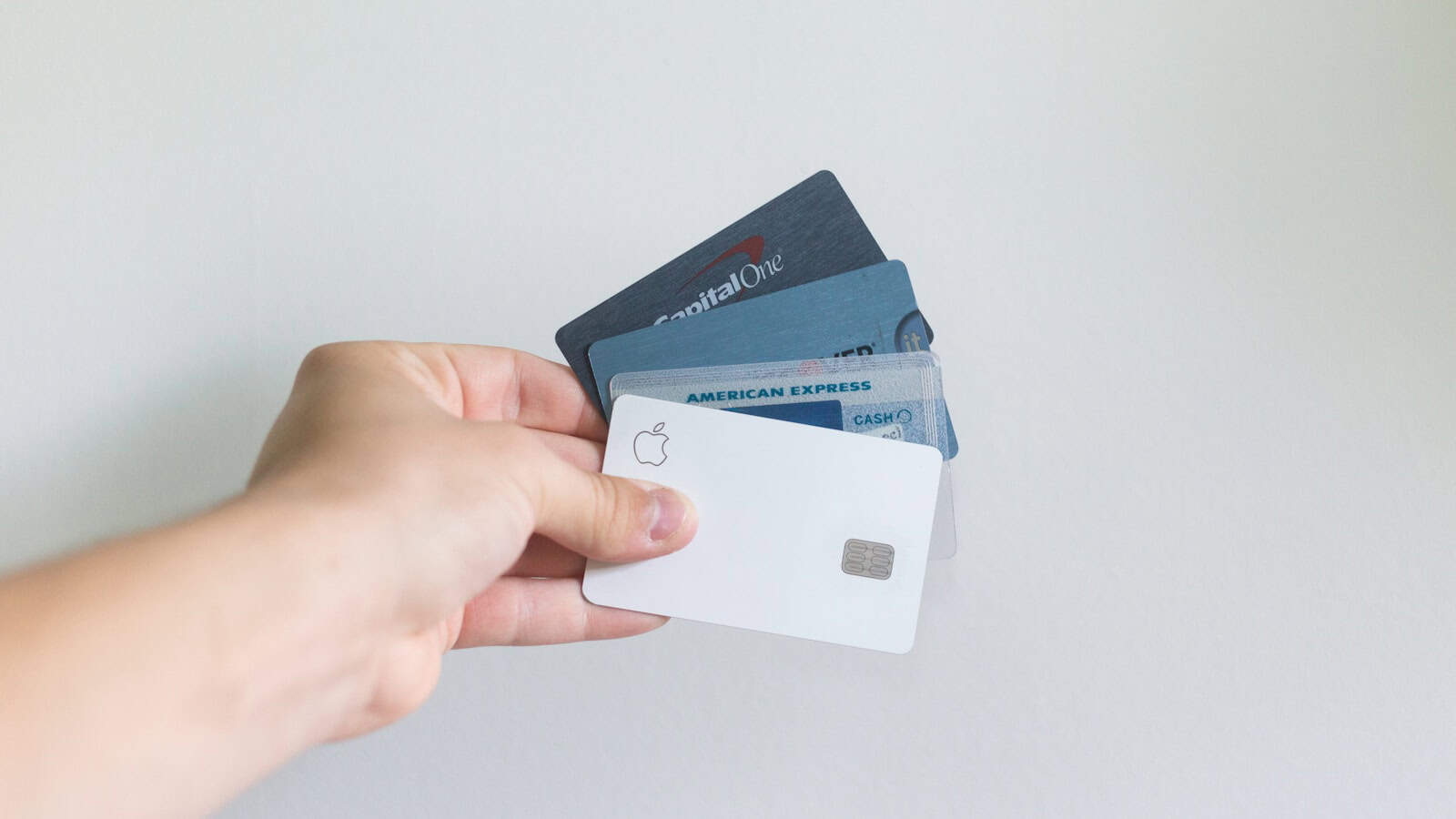The Truth About Anonymous Credit Cards
The idea of a truly “anonymous credit card” remains largely a myth. While many consumers are increasingly concerned about financial privacy, global regulatory frameworks—especially Know Your Customer (KYC) and Anti-Money Laundering (AML) laws—make complete anonymity in financial transactions virtually impossible. These rules require financial institutions and payment processors to verify user identities and monitor suspicious activity to combat fraud, terrorism financing, and tax evasion.
That said, while full anonymity is off the table, several tools and payment methods offer partial privacy, helping users obscure their personal and financial data in specific contexts. Below is a breakdown of the best anonymous or privacy-enhancing payment methods available today.
🔐 Virtual Credit Cards (VCCs)
Virtual credit cards provide one of the easiest and most effective ways to protect your financial identity online. They are digital-only cards tied to your actual account but with a randomly generated number, expiration date, and CVV code.
Best Services:
- Privacy.com: Allows you to generate disposable cards that can be locked to a specific merchant. Great for subscriptions and limits. The free plan includes up to 12 cards/month.
- Revolut: Offers disposable virtual cards that regenerate after every use. Premium plans provide unlimited card creation and integration with Apple Pay and Google Pay.
- DoNotPay’s Free Trial Card: Designed for temporary signups—perfect for avoiding unwanted subscription charges. These virtual cards decline any post-trial charges automatically.
While these services don’t make you anonymous to your card issuer, they prevent merchants and potential data leaks from exposing your real payment details.
🧾 Controlled Payment Numbers
These are temporary numbers linked to your real credit card account but used for a single transaction or limited use. Similar to virtual cards, they help mask your identity from the vendor.
How They Work:
- You create a number via your bank or provider.
- The number can be restricted by date, merchant, or dollar amount.
- If stolen, it’s useless to fraudsters due to narrow parameters.
Some major card issuers like Capital One and Citi offer this service to customers through browser extensions or apps.
🧳 Paze: A New Bank-Backed Privacy Wallet
Paze is a promising new digital wallet developed by Early Warning Services (creators of Zelle) with backing from top U.S. banks like Chase, Wells Fargo, and Bank of America. It lets users check out online without sharing actual card numbers.
Benefits:
- Merchants never see your real card details.
- If your card is compromised, Paze automatically updates merchants with the new card number.
- Seamless integration across participating bank accounts.
Paze reflects the industry’s shift toward privacy-enhancing tools within regulated frameworks.
💸 Privacy-Preserving Cryptocurrency Options
Cryptocurrencies offer a different layer of privacy—although not always anonymity. Most popular currencies like Bitcoin are pseudonymous: wallets aren’t directly tied to your name, but blockchain activity is public and traceable.
Highlights:
- Bitcoin: Offers pseudonymity but is traceable with effort.
- Monero & Zcash: Privacy-focused coins using advanced encryption to mask transactions and wallet balances.
- Crypto Debit Cards: Services like BitPay or Binance Card convert crypto to fiat and issue cards. But due to KYC laws, you must verify your identity to get one.
Buying crypto anonymously is harder than ever—most regulated exchanges require verification. Peer-to-peer trading and ATMs offer partial anonymity but come with limits, fees, and risk.
🏪 Prepaid Debit Cards & Gift Cards
Prepaid debit cards remain one of the few partially anonymous options—especially those bought in-store with cash.
Key Options:
- American Express, Visa, and Mastercard Prepaid Cards: Available at grocery stores, gas stations, and retailers. You can load them with cash, use them for purchases, and avoid linking them to your identity—at least for the initial load.
- Retailer Gift Cards: Bought with cash, these are perfect for anonymous purchases at specific stores like Amazon, Walmart, or Target.
Caveat: Once you try to reload or register these cards for online use, you’ll likely be prompted for personal information. They’re best used for single, low-risk transactions.
💡 GNU Taler: Ethical, Anonymous Digital Payments
GNU Taler is an open-source payment system that uses cryptographic blind signatures to allow anonymous payments by buyers while ensuring sellers remain identifiable for taxation and legal purposes. It avoids blockchain, reducing the risks of public traceability.
Though not widely adopted in retail, Taler is being explored by academic and ethical finance communities as a balance between privacy and compliance.
⚠️ Important Limitations
While many of these tools offer privacy, users must understand their boundaries:
- Merchant Acceptance: Not all merchants accept prepaid or virtual cards, especially for recurring payments.
- Legal Compliance: All major tools still comply with financial regulations. You’re not invisible—just more private.
- Geographic Restrictions: Availability varies by country. Some services are limited to U.S. or European customers.
Final Thoughts
The idea of a completely anonymous credit card in 2025 is still unrealistic—but that doesn’t mean you have no privacy. Tools like virtual cards, prepaid debit cards bought with cash, and privacy-centric digital wallets allow for more controlled, limited exposure of your financial data. The key is understanding where these tools shine and where they fall short. For now, financial privacy is a balancing act between convenience, regulation, and the level of anonymity you’re willing to trade for usability.
Best VPN Services 2025
In today’s world, keeping your online life safe is more important than ever. Many people use VPNs to protect their privacy while browsing the internet. A good VPN service can hide your location, protect your data from hackers, and even help you access websites that might be blocked in your area.
Finding the right VPN isn’t always easy with so many choices out there. Companies like NordVPN, ExpressVPN, and Surfshark are often mentioned in top reviews, but each offers different features that might matter to you. Speed, security features, and price are just a few things to think about before picking one.
1. ExpressVPN
ExpressVPN stands out as a top-rated VPN provider in 2025. It has built a solid reputation for its focus on privacy, speed, and reliability.
The company follows a strict no-logs policy, which has been checked by outside auditors. This means they don’t track or store your online activities, giving users peace of mind about their privacy.
Speed is another area where ExpressVPN shines. Users can browse, stream, and download without the frustrating slowdowns that plague many other VPN services.
Security features include strong encryption and various VPN protocols to keep your data safe. They offer protection across all major platforms including Windows, Mac, iOS, Android, and even routers.
Their server network spans numerous countries, allowing users to access geo-restricted content from almost anywhere. This makes it perfect for streaming fans who want to watch shows from different regions.
Many tech reviewers rank ExpressVPN as the world’s best VPN. CNET has recognized it as one of the best options in 2025, highlighting its consistent performance in privacy and security.
Customer support is available 24/7 through live chat, which is helpful when users face technical issues. Their support team responds quickly and can solve most problems efficiently.
The interface is clean and user-friendly. Even beginners can connect to a server with just one click, making it accessible to people with limited technical knowledge.
While ExpressVPN costs more than some competitors, many users feel the quality justifies the price. They offer a 30-day money-back guarantee so customers can try the service risk-free.
According to user reviews on Reddit, their older router app (version 1.x) was particularly praised for its security and configuration options. However, some users have mixed feelings about newer versions.
ExpressVPN also works well in countries with internet restrictions, making it a good choice for travelers or those living in regions with censorship.
2. NordVPN
NordVPN has earned its place as a top-tier VPN service in 2025. It offers impressive security features alongside reliable performance that keeps users coming back.
The service boasts one of the fastest speeds in the VPN market. This makes it excellent for streaming, gaming, and downloading large files without frustrating delays.
Security is a key strength for NordVPN. Tests show it’s leakproof for DNS, IP, and WebRTC, which means your online activities stay truly private. The provider uses strong encryption to protect user data.
Streaming fans will appreciate NordVPN’s ability to work with major platforms. It reliably unblocks Netflix, Amazon Prime Video, and other popular streaming services without much trouble.
The company maintains a vast server network spanning numerous countries. This wide coverage gives users plenty of options to connect from virtually anywhere and access geo-restricted content.
NordVPN’s applications are user-friendly and lightweight. They don’t slow down devices and offer intuitive interfaces that even beginners can navigate with ease.
The service uses a special protocol called NordLynx. This revolutionary technology helps maintain high speeds while keeping security tight.
Many long-time users feel the quality and range of features justify the price. Though not the cheapest option, NordVPN offers good value for what you get.
Customer support is responsive and helpful. Users can access 24/7 assistance through various channels when they encounter problems or have questions.
NordVPN works across multiple platforms including Windows, Mac, iOS, Android, and more. This versatility lets users protect all their devices with a single subscription.
Privacy policies are transparent, with the company maintaining a strict no-logs policy. They’re based in Panama, which has favorable privacy laws and no data retention requirements.
The service continues to evolve and improve its offerings. Regular updates add new features and fix any security concerns that might emerge.
3. Surfshark
Surfshark stands out in the crowded VPN market with its impressive blend of features and value. It offers unlimited simultaneous connections, making it perfect for households with many devices.
The service boasts a wide server network spanning numerous countries, giving users plenty of options for bypassing geo-restrictions. When tested, Surfshark shows excellent speed performance, making it suitable for streaming, gaming, and other bandwidth-intensive activities.
Security features are robust, including CleanWeb for blocking ads and malware, an automatic Kill Switch to protect your data if the VPN drops, and Rotating IP functionality. These tools help keep your online activities private and secure.
Surfshark’s no-logs policy adds another layer of privacy protection. The company promises not to track or store your browsing activities, giving peace of mind to privacy-conscious users.
When compared to NordVPN, another top provider, Surfshark offers similar core features but with more widespread server distribution. This can be beneficial for users needing access from varied global locations.
The VPN is known for its user-friendly interface. Even beginners find it easy to set up and start using right away, without technical hassles.
Recent changes have seen Surfshark move away from its previous budget-friendly positioning. While no longer the cheapest option, many users find the service still offers excellent value given its comprehensive feature set.
For those concerned about accessing content while maintaining privacy, Surfshark performs well with streaming services and supports P2P activities on its servers.
User feedback has generally been positive, with many highlighting the reliability of the service. The unlimited device policy particularly wins praise from families and people with many gadgets.
Surfshark’s commitment to improving its service shows in regular updates and new features. This forward-thinking approach helps it stay competitive in the fast-evolving VPN market.
4. ProtonVPN
ProtonVPN stands out as a privacy-focused service with strong security features. Based in Switzerland, it benefits from strong privacy laws that help protect user data.
The service offers a solid free tier that many consider the best no-cost VPN option available. Unlike other free VPNs, Proton doesn’t limit data usage, though free users can only connect to servers in three countries.
Premium plans unlock the full server network and additional features. Users gain access to over 1,800 servers across numerous countries, providing good options for bypassing geo-restrictions.
Speed tests show ProtonVPN performs well for most online activities. While not always the fastest option, it maintains reliable connections suitable for streaming and browsing.
For privacy-conscious users, ProtonVPN offers strong encryption and a strict no-logs policy. The company has undergone independent audits to verify their security claims, adding credibility to their promises.
A standout feature is Secure Core, which routes traffic through multiple servers in privacy-friendly countries. This provides extra protection against network-based attacks.
The service works well with streaming platforms, though effectiveness varies by location and server. Premium users generally report better success with unblocking content.
ProtonVPN integrates nicely with their other privacy services like Proton Mail. This creates a more complete privacy ecosystem for users invested in protecting their digital footprint.
The apps are user-friendly across Windows, Mac, iOS, Android, and Linux. Their clean interface makes connecting to servers quick and intuitive, even for VPN beginners.
Customer support options include email and an extensive knowledge base. However, they lack the live chat support offered by some competitors.
Pricing falls in the mid-range compared to other premium VPNs. The various subscription tiers let users choose the plan that fits their needs and budget.
PCMag rates ProtonVPN highly for its excellent features, high-performance network, and outstanding free subscription option. This makes it a worthy consideration for both new and experienced VPN users.
5. CyberGhost
CyberGhost ranks as one of the top VPN services in 2025. The company offers a solid mix of speed and security features that appeal to both new and experienced VPN users.
Connection speeds are a major strength for CyberGhost. The service provides blazing fast servers that keep browsing and streaming smooth. This makes it a good choice for people who watch a lot of videos or play online games.
Privacy protection is robust with CyberGhost. The service uses strong encryption to keep user data safe. They also maintain a strict no-logs policy, which means they don’t track or store information about what you do online.
CyberGhost works on many different devices. You can use it on Windows, Mac, iOS, Android, and Linux systems. This flexibility lets you protect all your devices with one subscription.
Streaming fans will appreciate CyberGhost’s capabilities. The service is excellent for streaming popular platforms. It can unlock content from different regions with specialized streaming servers.
The pricing makes CyberGhost attractive for budget-conscious users. While not the cheapest option available, it offers good value for the features provided. Longer subscription plans come with bigger discounts.
User experience with CyberGhost gets mixed reviews. Some users report that the apps can be problematic at times. However, many find the interface easy to use, especially for beginners.
Customer support options include live chat and email. The support team typically responds quickly to questions and problems. Their knowledge base also provides helpful guides for common issues.
CyberGhost offers a generous 45-day money-back guarantee for longer subscription plans. This gives users plenty of time to test the service and decide if it meets their needs.
While CyberGhost may not be the absolute best VPN on the market, it remains a strong contender. The balance of features, performance, and price makes it worth considering for most VPN shoppers.
6. Mullvad
Mullvad is widely recognized for its strong focus on privacy and security. Unlike many VPN providers, it doesn’t require an email address or any personal information to create an account – just generate a random account number and pay.
The service costs a flat rate of €5 per month, making it one of the most straightforward pricing models in the VPN market. There are no confusing tiers or discounts that push you toward longer commitments.
Privacy enthusiasts appreciate that Mullvad accepts cash payments sent by mail for complete anonymity. They also take Bitcoin and other cryptocurrencies if you want to avoid using credit cards.
Their apps are open-source and available on most platforms. This transparency allows security experts to check the code for any potential problems or backdoors.
Mullvad offers solid speeds that compete well with other top VPN services. Recent tests show it easily competes with ExpressVPN, Surfshark, and NordVPN in performance.
For torrenting fans, Mullvad permits P2P connections on all servers. However, if streaming is your main priority, be aware that Mullvad doesn’t prioritize unblocking streaming services like Netflix or Hulu.
The company runs a strict no-logs policy and is based in Sweden. They’ve undergone independent security audits to verify their privacy claims, building trust with users.
Mullvad’s desktop and mobile apps are simple and easy to use. The interface is straightforward without complicated settings, making it accessible for beginners while still offering advanced options for experienced users.
The service uses WireGuard protocol by default, which provides excellent security with better speeds than older VPN protocols. They also offer OpenVPN as an alternative for users who prefer it.
Mullvad has been highlighted by Wirecutter as one of the best VPN services alongside TunnelBear. Their reputation for privacy protection is well-established in the VPN community.
The company’s website states their mission is to “free the internet from mass surveillance and censorship.” This focus on privacy as their primary goal sets them apart from VPNs that emphasize streaming or other features.
7. IPVanish
IPVanish stands out as a solid VPN option with some unique features. It allows unlimited simultaneous connections from a single account, making it perfect for households with many devices.
This VPN includes the standard privacy protections you’d expect. Users get DNS leak protection and a kill switch to keep their information safe if the VPN connection drops unexpectedly.
Speed is a major strength for IPVanish. Recent tests show it performs exceptionally well with the WireGuard protocol, ranking in the top three fastest VPNs available. This makes it great for streaming and downloading.
The service works by tunneling your internet traffic and masking your real IP address. This protection helps shield your data from prying eyes while browsing.
IPVanish offers a good global server presence. Users can connect to servers in numerous countries, providing flexibility when accessing geo-restricted content or seeking better connection speeds.
Beginners will appreciate the user-friendly interface. The apps are straightforward and don’t overwhelm users with complicated settings, though all advanced options remain accessible when needed.
Price-wise, IPVanish sits in the mid-range compared to competitors. Their subscription plans often include special promotions for new users, making the initial cost more affordable.
Customer support is available 24/7 through live chat. This accessibility proves helpful when users encounter connection issues or have questions about specific features.
While IPVanish delivers in many areas, it may not be the best choice for those with extreme privacy concerns. Some users might prefer VPNs based outside the US jurisdiction for maximum privacy protection.
The service works across major platforms including Windows, Mac, iOS, Android, and even some router configurations. This compatibility ensures protection regardless of which device you’re using.
8. Hotspot Shield
Hotspot Shield is a popular VPN service known for its speed capabilities. It has been verified as the #1 VPN for speed by experts, making it a solid choice for activities that require fast connections.
Users looking for streaming, gaming, or other high-bandwidth activities might find Hotspot Shield particularly useful. The service works across multiple platforms including Windows, Mac, Android, and iOS devices.
One notable feature of Hotspot Shield is its free version. The company offers a free download of their VPN service, which can help users unblock websites, browse anonymously, and secure internet connections.
However, the service isn’t without drawbacks. According to PCMag, Hotspot Shield earned only a 3.0 rating, suggesting there are better options available. The review recommends alternatives like Proton VPN and NordVPN for “excellent protection with far fewer trade-offs.”
When it comes to streaming services, Hotspot Shield performs well. The VPN is recognized for its ability to unblock popular streaming platforms thanks to its fast speeds and user-friendly interface.
The simple design makes Hotspot Shield accessible even for VPN beginners. Its intuitive controls allow users to connect quickly without navigating complex settings menus.
Security features are standard for the industry, providing encryption to protect your data from potential snoopers. This helps keep your online activities private from your internet service provider and other third parties.
Pricing for premium plans falls in the mid-range compared to competitors. While not the cheapest option available, the speed benefits might justify the cost for users who prioritize performance over price.
Customer support options include help guides and direct assistance channels. This can be helpful when setting up the VPN on different devices or troubleshooting connection issues.
For users primarily concerned with speed, Hotspot Shield represents a worthy contender in the VPN market. Its balance of performance and user-friendliness makes it suitable for casual users and those with specific high-bandwidth needs.
9. PureVPN
PureVPN stands out as one of the most affordable VPN services in 2025, with long-term plans starting at just $4.07 per month. This budget-friendly option doesn’t skimp on features despite its low price point.
The service boasts an impressive network of over 6,000 servers spread across more than 65 countries. This wide coverage helps users access content from almost anywhere in the world while maintaining good connection speeds.
For streaming fans, PureVPN is a solid choice. It performs well in unblocking tests, allowing access to various streaming platforms that might otherwise be restricted in certain regions.
When it comes to security, PureVPN has taken steps to prove its trustworthiness. The company has undergone audits by reputable firms that confirm its status as a No-Log service provider. This means they don’t keep records of your online activities.
Speed is another area where PureVPN delivers. PCMag’s review highlights its excellent speed test results, which is crucial for users who need quick and reliable connections for downloading, streaming, or gaming.
The service offers apps for all major platforms, making it easy to protect multiple devices with a single subscription. Their user interface is straightforward and beginner-friendly.
Customer support is available 24/7 through live chat, which helps users resolve any issues quickly. This level of support is especially valuable for VPN newcomers who might need extra guidance.
While PureVPN offers many strengths, it’s worth noting that it doesn’t include as many privacy extras as some competitors. Users looking for advanced features might need to consider if the basics provided meet their specific needs.
PureVPN offers a 31-day money-back guarantee, giving new users plenty of time to test the service risk-free. This generous trial period shows the company’s confidence in their product.
For those primarily concerned with accessing geo-restricted content and basic privacy protection at a reasonable price, PureVPN presents a compelling option in the crowded VPN market.
10. VyprVPN
VyprVPN is a privacy-focused service that owns all its servers rather than renting them. This gives users better security since third parties can’t access their data.
One standout feature is their Chameleon protocol. It helps users bypass internet censorship in countries with strict online rules.
VyprVPN lets you connect up to 30 devices at once, which is more than many competitors offer. This makes it good for families or people with lots of gadgets.
Speed tests show mixed results. When using the WireGuard protocol, VyprVPN performs well on Windows, Mac, Android, and iOS devices. However, NordVPN offers slightly faster speeds on Windows computers.
The server network is smaller but well-maintained. While some competitors have thousands of servers, VyprVPN focuses on quality over quantity with their fleet.
Price-wise, VyprVPN offers unusual subscription lengths that are quite affordable. They often run special deals on their website.
The service works well for streaming content. VyprVPN can help users access content from around the world that might be blocked in their location.
Their apps are user-friendly and available for all major platforms. The interface is simple enough that even beginners can use it without trouble.
Customer support includes live chat and email options. Response times are generally quick, though not always immediate.
For privacy, VyprVPN has a no-logs policy. This means they don’t track or store information about what you do online while using their service.
Understanding VPNs
VPNs create a private tunnel for your internet traffic, encrypting data between your device and the websites you visit. They hide your IP address and protect your information from hackers, ISPs, and other snoopers.
How VPNs Work
When you connect to a VPN, it creates an encrypted tunnel between your device and the VPN server. Your internet traffic travels through this secure tunnel before reaching its destination.
Think of it like sending a letter in a locked box that only the recipient can open. Without a VPN, your data travels in the open where others can see it.
Your real IP address gets masked by the VPN server’s address. This makes websites think you’re browsing from the VPN server’s location, not your actual location. This process is called IP masking.
VPNs also protect you on public Wi-Fi networks. These networks are often unsecured, making them prime spots for hackers. A VPN encrypts your data so even if someone intercepts it, they can’t read it.
Types of VPN Protocols
VPN protocols are the rules that determine how your data routes between your device and the VPN server. Each protocol offers different benefits for security and speed.
OpenVPN stands out as one of the most secure protocols. It’s open-source, meaning security experts constantly check it for weaknesses. It works well for most uses but might be slightly slower than newer options.
WireGuard is the new kid on the block. It’s faster than older protocols while maintaining strong security. Many top VPN services now offer WireGuard.
IKEv2/IPsec excels at reconnecting quickly if your internet drops. This makes it perfect for mobile devices that switch between Wi-Fi and cellular data.
L2TP/IPsec and PPTP are older protocols. While L2TP/IPsec still offers decent security, experts consider PPTP outdated and less secure for sensitive activities.
Benefits of Using a VPN
VPNs offer powerful tools for internet users who want to protect their data and access content without restrictions. They create an encrypted tunnel for your online activities that shields you from prying eyes.
Enhanced Privacy and Security
A VPN masks your real IP address, making it much harder for websites, advertisers, and potential hackers to track your online movements. This extra layer of privacy prevents your internet service provider (ISP) from seeing and potentially selling your browsing data.
The encryption provided by VPNs is particularly valuable when using public Wi-Fi networks. These networks are often unsecured, making them hunting grounds for cybercriminals. A good VPN creates a secure tunnel that protects your data even on these risky connections.
Many VPN services now include additional security features like:
- Built-in ad blockers
- Malware protection
- Protection from DNS leaks
- Kill switches that cut internet if the VPN fails
These tools work together to create a more private browsing experience where your identifiable data remains encrypted and protected from third parties.
Access to Restricted Content
VPNs allow you to bypass geographic restrictions by connecting to servers in different countries. This means you can access streaming content that might be blocked in your region, whether it’s shows, movies, or sports events not available locally.
This capability is also valuable for travelers who want to access their home country’s services while abroad. Banking apps, news sites, and streaming platforms often restrict access based on location, but a VPN helps maintain normal access.
In countries with internet censorship, VPNs provide a crucial window to the unrestricted web. They help users reach blocked social media platforms, news sources, and communication tools that would otherwise be unavailable.
Business travelers benefit too, as VPNs allow secure access to company resources from anywhere in the world. This creates a safer, freer online experience without sacrificing connectivity.
Frequently Asked Questions
VPN services differ in features, speed, and security measures. Here are answers to common questions that can help you make an informed choice for your privacy needs.
What are the top VPN services recommended for security?
ExpressVPN and NordVPN consistently rank among the most secure options available. They offer strong encryption protocols and strict no-logs policies.
CyberGhost also stands out with its dedicated security features and automatic kill switch that protects your data if the VPN connection drops suddenly.
For users who prioritize privacy above all, Mullvad provides excellent security with minimal personal information required during signup.
Which VPN provides the best speed and reliability?
ExpressVPN typically offers the fastest connections with minimal speed loss, making it ideal for streaming and gaming activities.
NordVPN has greatly improved its speed performance with the introduction of its NordLynx protocol, which many users find provides an excellent balance of security and speed.
Surfshark delivers impressive speeds especially considering its lower price point, allowing multiple device connections without noticeable slowdowns.
How do I choose a VPN that’s right for my needs?
Start by identifying your primary use case – whether it’s streaming, security, torrenting, or bypassing geo-restrictions. This helps narrow down your options.
Consider your budget and the number of devices you need to protect. Some services like Surfshark offer unlimited simultaneous connections, while others limit you to 5-10 devices.
Check for important features like kill switches, split tunneling, and server locations in countries you need access to.
Are there any high-quality VPNs available at no cost?
ProtonVPN offers a free tier with unlimited data and solid security features, though with speed limitations and access to only three server locations.
TunnelBear provides a free option with a 500MB monthly data cap, which works for occasional light browsing but not streaming or regular use.
Free VPNs generally come with significant limitations in speed, server options, or data caps – and some may compromise your privacy by selling your data.
Can using a VPN ensure my online anonymity?
A VPN significantly improves privacy by hiding your IP address and encrypting your traffic, but complete anonymity isn’t guaranteed.
Your browsing habits could still be tracked through cookies, browser fingerprinting, and other tracking technologies that don’t rely on your IP address.
The “zero logs” policies promoted by many VPNs vary in implementation – some may still collect certain data about your usage despite these claims.
What should I look for in a VPN to secure my online activities?
Strong encryption protocols like OpenVPN or WireGuard are essential for protecting your data from interception.
Look for VPNs with independently verified no-logs policies, meaning the company has been audited to confirm they don’t track your activities.
Additional security features worth considering include DNS leak protection, kill switches, and multi-hop connections that route your traffic through multiple servers.







